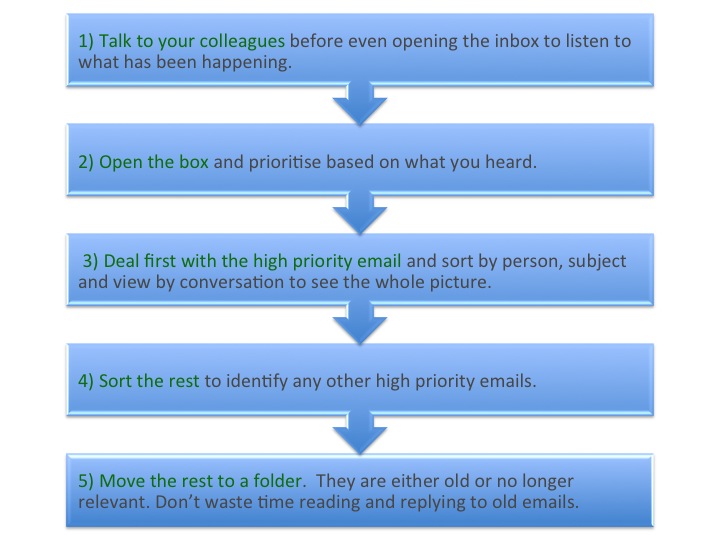Three themes stood out over the past few weeks: the obvious one of new year’s resolutions and predictions; our skill or lack of it with the English language and of course the Court of Human Rights ruling in favour of an employer who monitored an employee’s personal emails.
2016 predictions and resolutions
 Set goals rather than resolutions. Did you set yourself up for failure just a week into the new year by setting a series of new year’s resolutions which within a week you had broken? Well it turns out that it is better to establish some SMART goals against which we can monitor our progress. It’s never too late to re-calibrate and set new goals.
Set goals rather than resolutions. Did you set yourself up for failure just a week into the new year by setting a series of new year’s resolutions which within a week you had broken? Well it turns out that it is better to establish some SMART goals against which we can monitor our progress. It’s never too late to re-calibrate and set new goals.How clearly do you communicate?
Monitoring employee’s personal emails
Tags: corporate email etiquette, corporate email overload, cyber crime, Lucy Kellaway, Mesmo Consultancy, SMART goals
 The English language is complicated enough for those who did not learn Latin at school. Spell and grammar checkers are hailed as tools of the digital age which should make our lives easier. However, they are useless at picking up on the errors generated by using Homonyms. These are words which sound the same but are spelt differently. Here are some examples.
The English language is complicated enough for those who did not learn Latin at school. Spell and grammar checkers are hailed as tools of the digital age which should make our lives easier. However, they are useless at picking up on the errors generated by using Homonyms. These are words which sound the same but are spelt differently. Here are some examples.
How often have you said you will arrange a meeting in mourning (for whom) when naturally you mean the morning? Certainly as one who struggles with mild dyslexia I have made many errors despite emails being be read on screen and paper and spell checked.
As if this is not enough, there are the Homophones, those words which sound and are spelt the same but have different meanings. These are so well illustrated by Lynne Truss’s book ‘ Eats Shoots and Leaves’. Surely a must for anyone who is either a grammar pedant or cares about their email etiquette. One of my favourite Homophones is ‘Rose’. For example:
Are we planting a rose before our partner rose from bed because they drank too much rose coloured wine last night?
There have been several articles recently about the importance of grammar in business and some have suggested that better grammar is linked to how high you climb the corporate greasy pole.
What is clear from Mesmo Consultancy’s studies is that grammatically correct emails help reduce email overload because they convey the right message right first time. Additionally, good email etiquette as in good grammar conveys a professional image and most importantly make it easy for the recipient to know what is being asked of them.
Next time before hitting send, pause, take the slow email approach and re-read before hitting send. Make sure the human touch pervades over the arrogance of the spell checker.
This is an edited extract from my new book Taking Control of Your Inbox due out in late November. Watch this space for more news.
Tags: Dr Monica E. Seeley, email etiquette, email overload, Executive Secretary, Grammar, Lynne Truss, Mesmo Consultancy, Slow email, Taking Control of Your Inbox
How well do you protect your on-line reputation to avoid an email disaster? The hacking of Ashley Madison website (the dating agency) provided some statutory lessons about how one’s reputation can be destroyed in a nano second. In a nutshell, this well known dating agency’s data was hacked. Details of about 33 million accounts were released including peoples sexual preferences and fantasies linked to their email address. They also cracked passwords and credit card information.
What made people and business’s more twitchy than usual was that names were associated with companies, because many were silly enough to use their business email address. Technology companies listed included Apple, HP, IBM Sony, Snapchat and Vodafone. Many others were Government officials and household business names.
As a result we have seen some people resigning from their jobs and at least one suicide.
This highly visible hack provides several very pertinent lessons both for us as individual users and corporately for the business. None are new. Perhaps the surprising fact is that so many people continued to forget to bolt the door securely on their on-line identity until it is too late.
Lesson 1 – never use your business email address for anything other than business unless it is an emergency. Use a personal email address for all social emails.
Lesson 2 – be very vigilant about what information you post on websites because In reality nothing is private on the internet. Several people paid to have their profile removed but it still turned up.
Lesson 3 – before hitting send and posting information think about the consequences to yourself should someone else find it, for example either through hacking or worse still close friend or partner.
Lesson 4 – set strong passwords. One survey revealed that over 120 people use simple ones like 123456. Click here for more about password management.
Lesson 5 – spend time developing a crisis management plan whether for your business or self in the event of such a disaster.
This won’t be the last high profile hack but hopefully some will take these five lesson seriously and especially use their business email address more cautiously to manage their own and their company image more carefully.
Call Mesmo Consultancy now to discuss how we have helped our clients to improve the management of their on-line reputation to avoid an email disaster like this and the Sony email disaster.
Tags: Ashley Madison, email disasters, email reputation, Hacking, Mesmo Consultancy, Password Management, password protection
Dealing with the holiday email overload is one of the most stressful aspects of being on vacation according to a survey conducted by Mesmo Consultancy. This is not surprising when you realise that most business people (and especially executives and PAs) feel that at least 50% of the emails they receive are unnecessary. One survey recently put it as high as 75%. Little wonder dealing with the holiday back log can seem quite daunting.
It does not have to be that way. For those just back from leave and who did not either adopt Mesmo Consultancy’s email detox plan, or take David Grossman’s (email free vacation pledge) here is a tried and trusted five point plan to reduce the holiday email backlog and quickly reach inbox zero.

Spending the first hour talking to your colleagues will help you discover far more rapidly what is high priority and needs your attention rather than trawling unprepared through your inbox.
When you tackle the inbox set aside a specific block of time (eg 3 hours). Group your emails by person, subject, date etc. Use the conversation view (threads) to see the whole picture before replying too quickly. You may even feel you want to reply only to the emails sent to you rather than where you are Cc’d.
As you open each email, handle it once and once only. Avoid scanning emails and then having to go back as this wastes time. Action each selected email as you read it using the four Ds principle; deal, delete, delegate or defer action. In the latter case flag/mark it for attention and tell the sender when they can expect a reply.
Still too much email, then declare email bankruptcy. You can be very sure that if an email was that important the sender will soon re-send it once they realise you have not responded.
What ways have you found useful to have a clean inbox and reach inbox zero after being on vacation?
Tags: Clean Inbox, David Grossman, Email Bankruptcy, Email detox, inbox zero, Mesmo Consultancy, Reduce holiday email overload, Vacation email management, Vacation email stress
Hilary Clinton used a personal email account rather than her White House one. Now 10 Downing Street admits to automatically deleting its emails after 90 days. As a result some are suggesting that instant electronic messaging systems which self-destruct are the solution like SnapChat and Slack. But are they?
For any technology to succeed and add value to the business, requires that users are properly trained. Sadly though, normally 80% of our time and budget is spent on the technology and its implementation and only 20% on providing the user with adequate skills to use it properly.
How many of you have ever been educated to mange your use of email, little own deploy good email etiquette which would reduce the need to email ping-pong and email gaffs. In Mesmo Consultancy’s experiences it is less that 20%. So little wonder we often find ourselves confronted with consequences of an email we wish we had never sent.

Email disasters
It is naive to think that we can delete an email. Once sent it is there for ever, either stored on a server as News International and Sony Corporation found to their dismay, or still in the recipient’s inbox. Far better is to adopt slow and quiet email. Think before hitting send. Reflect and ask yourself ‘what if someone found this email’.
Without proper training and a change in organisational culture instant electronic messaging communications systems (like Slack and SnapChat) will be doomed to the same failure and disasters as our current version of email.
Need help to change your email culture to make it work for, rather than against you? Call Mesmo Consultancy to hear how our email training has has helped others. Alternatively, watch our video on email etiquette.
Tags: 10 Downing Street, Deleting emails, email culture, email etiquette training, Email gaffs, Email ping-pong, Email training, Hilary Clinton, Mesmo Consultancy, News International, Slack, SnapChat, Sony Corporation